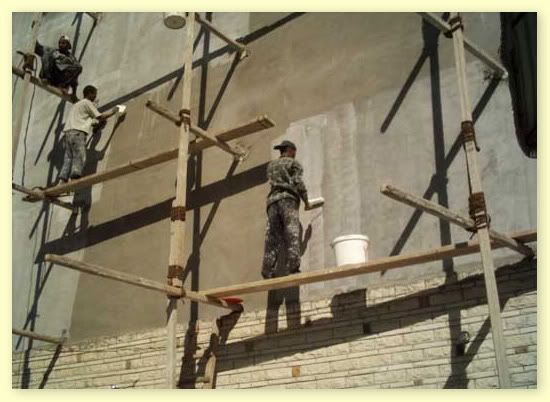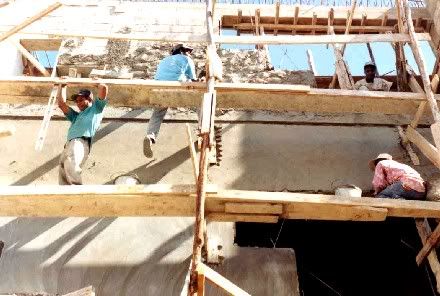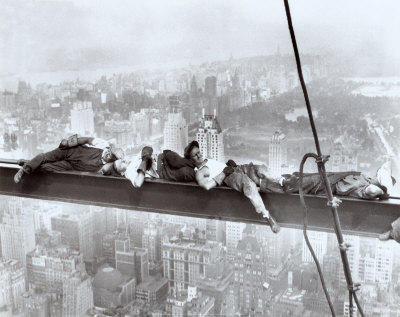- Thread starter bronzeallspice
- Start date
You are using an out of date browser. It may not display this or other websites correctly.
You should upgrade or use an alternative browser.
You should upgrade or use an alternative browser.
Why Men Die Before Women
No. 1 reason why men die before women? Due to taking risks such as these (That guy on that yellow tall building is craaaazy). No. 1 reason why guys take risks such as these? Because the women are always nagging them about the walls needing paint, the glass needing cleaning, the air conditioner needs fixing, etc, etc, etc...so at a certain point the guy just says "Screw it!!! if I fall from here at least I won't hear about it anymore" and risks it.:cheeky::cheeky::cheeky::cheeky:
There's a reason I don't paint.
There's a reason I don't paint.
gotta love the electric drill on a metal ladder in the pool. Had a friend who died using a metal drill (old style) while working on a metal roof in Florida. Cadaver spent the night up there until neighbor saw him "sleeping" on the roof the next morning.
He had been warned that the old metal housing drills were dangerous but was too cheap to buy a new plastic case model since the old drill "worked just fine". You live and learn or not.
He had been warned that the old metal housing drills were dangerous but was too cheap to buy a new plastic case model since the old drill "worked just fine". You live and learn or not.
It is amazing to me how certain people are just not afraid of stepping onto some ledge 1000 feet off the ground where one slip would constitute certain death...There has to be something in the brain that makes people take these risks.
Of course, it's called hunger my fren.
It is amazing to me how certain people are just not afraid of stepping onto some ledge 1000 feet off the ground where one slip would constitute certain death...There has to be something in the brain that makes people take these risks.
Maybe they've got Indian blood, the Mohawks are famous for being seemingly fearless of heights. Found this on The Straight Dope:
[h=1]Why do so many Native Americans work on skyscrapers?[/h]December 18, 1992
Dear Cecil:
What's the deal with the historical hiring of Native American Indians to work on skyscrapers? Have they all truly been blessed with a lack of fear for heights?
— Robert Wallman, New York
Cecil replies:
Nah, it's the warrior ethic. Really. But first we'd better have a little background. It's not just any American Indian who goes into ironwork, it's mostly Iroquois, specifically Mohawks from the Kahnawake reservation near Montreal.
The Mohawks got into the business by happenstance. In 1886 a Canadian company was building a railroad bridge over the St. Lawrence river near the Kahnawake reservation. The company hired a number of Mohawks as day laborers, but found they loved to climb around on the ironwork without any apparent fear of heights. Since it was difficult to find men with the moxie for high work, the company decided to try an Indian crew. "We picked out some and gave them a little training, and it turned out that putting riveting tools in their hands was like putting ham with eggs," a company official later wrote. Mohawks helped build bridges from then on.
In 1907 96 men were killed when a span of the Quebec Bridge collapsed during construction; 35 of them were Indians from Kahnawake. The dead were buried in the Kahnawake cemetery under crosses made of steel beams. Your average construction worker might have decided it was time to go into a safer line of work, but not the Mohawks. From that day forward every young male on the reservation was convinced that risking your neck on high steel was the coolest calling this world could offer.
The Mohawks eventually branched out from bridges into general steel construction, including office buildings. During the late 1920s a number of Kahnawake crews started working on skyscrapers in New York, and they've been a fixture of the city's construction scene ever since. Some crews — the members are often related to one another — spend the weekends on the reservation and drive down to New York for the week; others live in Brooklyn. But they'll travel anywhere if there's steel to climb.
Do the Mohawks really have no fear of heights? Their employers think so, and the Indians themselves like to make out as though dancing on some I-beam 600 feet in the air is no more disruptive to their peace of mind than stepping off a curb. Edmund Wilson, who wrote several essays about the Iroquois for the New Yorker in the 1950s, quoted one modest steel jockey's claim that he had "an uncanny sense of balance," and attributed their skill to "their earlier life, from threading forests and scaling mountains, from canoeing in streams rough with rapids. A very important factor is undoubtedly their habit, in walking, of putting one foot in front of the other, instead of straddling, as we seem to them to do. They do not need to make an effort in walking a narrow beam."
Far be it from me to make light of this portrait of the noble red man, but there may be a simpler explanation: they do it because it's macho. Evidence on this point comes to us from anthropologist Morris Freilich, who published a solemn academic study on the subject in 1958. Ordinarily Cecil doesn't take this kind of thing too seriously, but in this instance was impressed by Freilich's impeccable research methodology: he spent his nights getting schnockered with the Mohawks at their favorite bar in Brooklyn.
One night when they were all drunk the Indians admitted they were scared fecal matter-less while iron hopping; they just didn't admit it because of the above-mentioned warrior ethic. (They didn't actually say "warrior ethic," of course; that was Freilich's take on it.) Freilich pointed out in his article that the Iroquois warrior tradition boiled down to going off with the boys to perform insane feats of bravery and generally raise hell, then coming home and boasting about your exploits. The warpath being no longer socially acceptable, steelwork was the next best thing. Sure, it's one of those silly male things. But I'd say it beats joining the men's movement and pounding a drum.
— Cecil Adams
I used to rock climb about 30 hours a week back in my younger days. A small percentage of climbers do it without any ropes or gear of any kind. Once you get above 30ft, you're chances are pretty slim for surviving a straight fall. With gear, rock climbing is safer than skiing or even riding a bike.
I took a 25ft fall once when I was about 100ft up and my rope caught me. Dislocated my foot on the way down. Took six weeks before I could walk without crutches.
Saw another guy "bottom" out when he was 75ft up, but he manage to cling to the cliff on the way down for most of the way. He landed perfectly flat on his back and bounced a couple inches. The amazing thing was aside from getting the wind knocked out of him and some bruises, he suffered no real damage. Came back a week later to do the same climb with a little more attention to where he put his anchors in.
I took a 25ft fall once when I was about 100ft up and my rope caught me. Dislocated my foot on the way down. Took six weeks before I could walk without crutches.
Saw another guy "bottom" out when he was 75ft up, but he manage to cling to the cliff on the way down for most of the way. He landed perfectly flat on his back and bounced a couple inches. The amazing thing was aside from getting the wind knocked out of him and some bruises, he suffered no real damage. Came back a week later to do the same climb with a little more attention to where he put his anchors in.
Well, I'm clearly not a rock climber and don't have any Mohawk blood. I get dizzy on a step ladder. :cheeky:


















